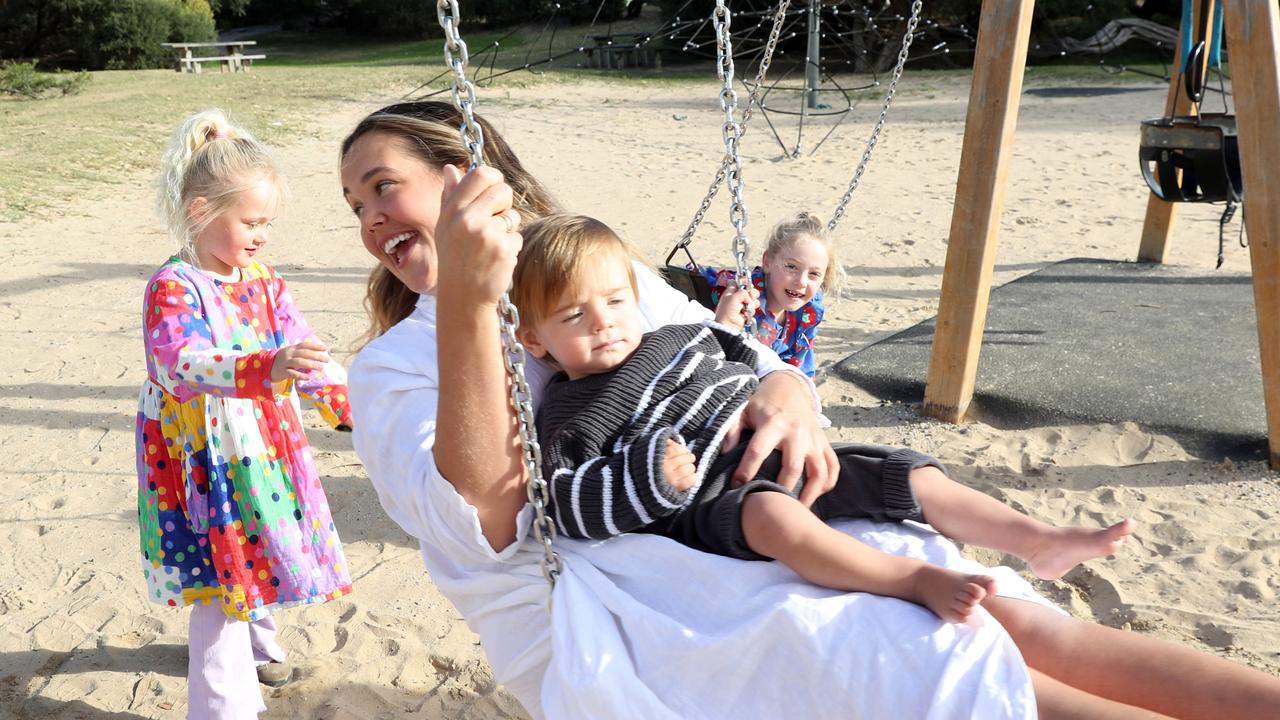Flight data of Point Lonsdale helicopter crash revealed amid joint investigation
Flight data of a helicopter crash near Point Lonsdale has revealed how low the aircraft was allegedly flying when it plunged into the ocean with three people on board.
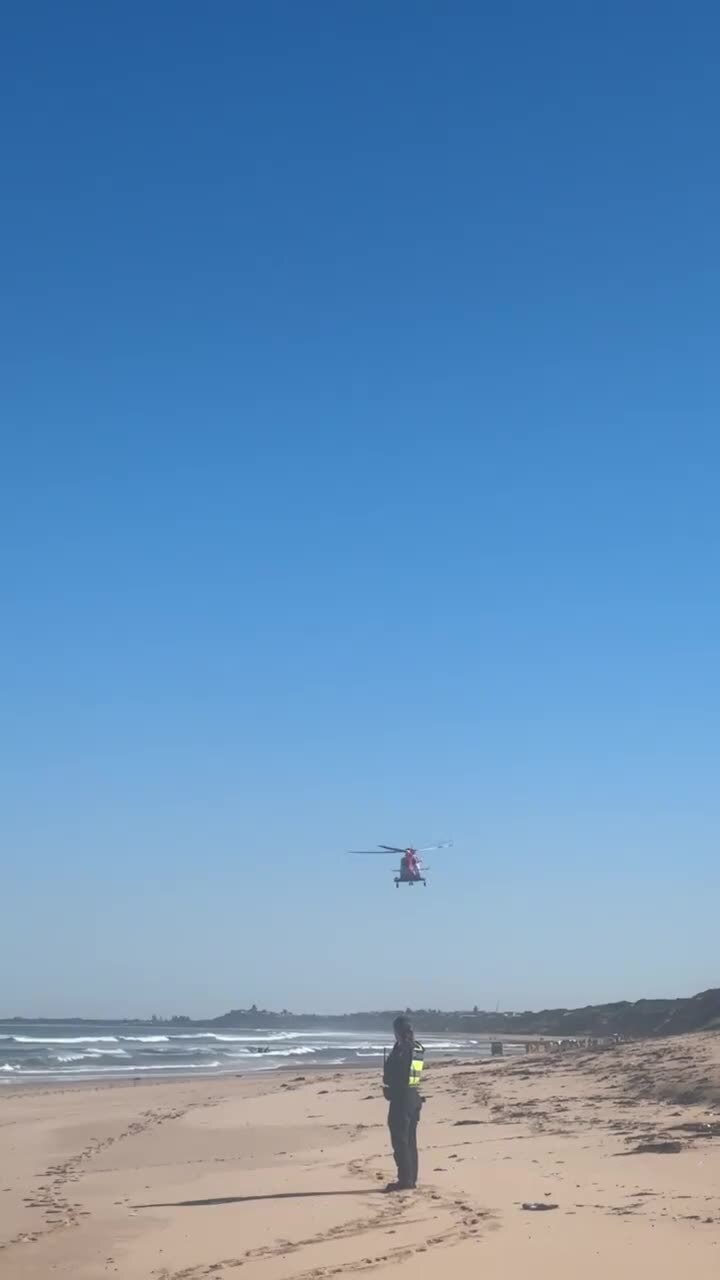
Geelong
Don't miss out on the headlines from Geelong. Followed categories will be added to My News.
Flight data of a helicopter crash near Point Lonsdale has revealed how low the aircraft was allegedly flying when it plunged into the ocean with three people on board.
A joint multi-agency investigation has been launched into how the Robinson R44 spiralled out-of-control and into the water between Ocean Grove and Point Lonsdale on Friday.
It’s understood the engine failed about 40m from shore, witnessed by multiple people on the beach who described seeing the chopper “flying low over the ocean”.

Radar information from Open ADSB, an air traffic database, tracked the short flight leaving Barwon Heads airport travelling east bound along the coast in a sustained cruise altitude of 30m above the water.
Civil Aviation Safety Authority (CASA) regulations require pilots to fly no lower than 300m over built up areas, or 152.4m over any other areas unless they are landing or taking off.
Victoria Police and the Australian Transport Safety Bureau (ATSB) are currently investigating the circumstances that lead to the disaster.
The ATSB confirmed the retrieval and recovery of all available recorded data would form part of an expected five month probe.
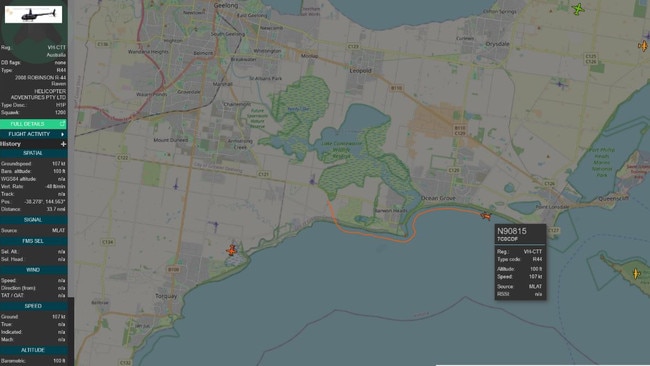
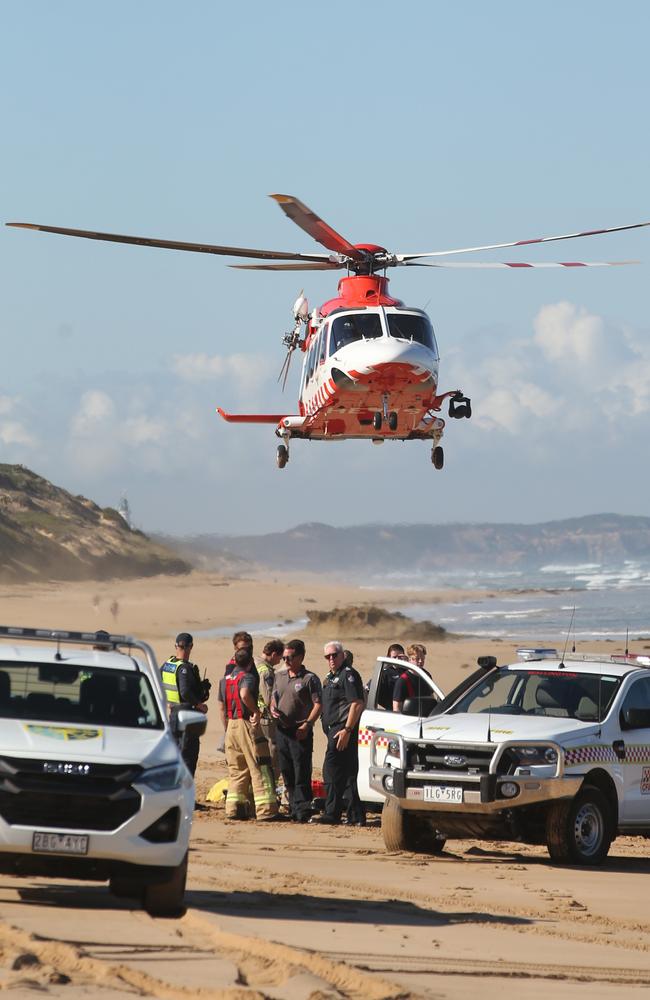
Three people, including veteran pilot Anton Westerink, were lucky to survive and remained in hospital as of Thursday afternoon.
A male jogger who waded into the swell to help pull passengers to safety said he witnessed the chopper flying low over the ocean before it “crashed just off the shore.”
Mr Westerink is a well-known and respected pilot who owns and operates Geelong Helicopters.
A colleague and friend, Don Adamson, said it would have taken “something beyond his control” to crash.
He is recovering from serious injuries in the Royal Melbourne Hospital along with a female passenger, in her 40s.
Another man, 53, is still in Geelong hospital in a stable condition.
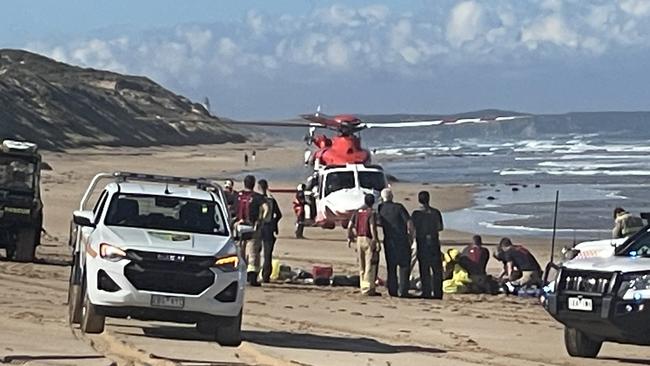
Meanwhile a commercial pilot with more than 3500 hours flying time said a helicopter engine failure required a crucial maneuver called “autorotation” to descend safely to the ground.
Jason Borys, a former Heli-Serv employee, said pilots were well trained and generally able to recover.
“If you have an engine failure you can glide the aircraft down in full control to find a spot to land,” he said.
“The higher you are the better you can find a spot and it obviously becomes more difficult at a lower height.”
More Coverage
Originally published as Flight data of Point Lonsdale helicopter crash revealed amid joint investigation




